 The Righteous Mind: Why Good People are Divided by Politics and Religion by Jonathan Haidt
The Righteous Mind: Why Good People are Divided by Politics and Religion by Jonathan Haidt
My rating: 3 of 5 stars
Recently, I got to read The Righteous Mind by Jonathan Haidt. I was disappointed by the general quality of the book, the style of reasoning and the somewhat surprising conclusions the author draws from them.
Somewhere in the middle of the book, he discusses the type of people he thinks are more susceptible to liberal ideas. As examples he takes great thinkers like Immanuel Kant, David Hume and John Stuart Mill.
He says in the book that the liberal thinkers among them tended to be recluses with some anti-social tendencies.
In order to support this somewhat strange point of his he talks about how these people had few friends, had odd routines and about their dysfunctional or somewhat abnormal personal relations.
He then goes on to analyse the liberal thinkers'(John S Mill and Kant) personalities in light of his interesting Moral Foundations Theory that posits that the human moral system is founded on a few basic concepts that supposedly have their roots in basic human psychology.
According to this theory, these foundations are :-
- Care/Harm foundation
- Justice/Fairness
- Sanctity/Purity
- Loyalty
- Respect of authority
He thinks that conservatives and conservative thinkers depend on all these foundations “evenly”(whatever that is supposed to mean!) to make moral decisions. Whereas, liberals depend overwhelmingly on the first two to make their moral choices.
At this point the book starts to get really weird. He says that the moral foundations are like taste buds and that moral systems exhibit so much diversity because of the infinite ways in which these “tastes” can be combined to create “cuisines”.
Then, he jumps from this to his follow-on conclusion that because liberals depend on fewer “tastes” to stimulate their moral sensibilities they are less broad-minded than conservatives!! (WTF moment!) Please read the above sentence once more. I wanted to make it all caps. Because, that is how it appeared to me when I read it. It was like a giant big flashing red sign telling me that somewhere something went horribly wrong….
Hmmm…. So, turns out conservatives are more broad-minded when compared to liberals because they crave for and appreciate a more “varied (moral) diet”.
So, the liberal thinkers who made such astounding and paradigm changing contributions to human welfare by suggesting ways of removing fundamental blocks to it in our law, social and political organization and personal behavior and who have had a fundamental impact on our collective well- being in addition to providing the basic concepts that underpin the most sophisticated, peaceful and developed social systems in the world are apparently narrow-minded people because they don’t have as many moral taste-buds!! hahaha
He bolsters his case by talking about how Kant was such a loner and a strange character. He then comes up with a clever experiment. He rates people on a spectrum of qualities at the far end of which lies characteristics that indicate possible autism. He then measures the degree to which their attitudes are liberal and discovers that people who tend more towards autistic qualities are more liberal than the “normal” people.
There is a hidden implication here. The overall point of all these specious arguments, cherry-picking of facts and flawed experiments is to somehow justify his apparent “enlightenment”(more on that later) and awakening to the value of conservatism and his unstated conclusion that liberal attitudes don’t fit with “human-nature”(TM).
This is wrong on so many levels that one feels a little pity for this dude for having spent so much time on confusing himself so thoroughly. It might be true that loners who don’t spend as much time partying and hanging out with friends are more liberal. But, did he ask why? Is it because there are some neurological differences in their brains that make them susceptible to moral deviances and deficiencies or is there something about the typical lifestyle of such a person that causes them to dump conservatism?
Isn’t it likely that people with a scholarly personality will be reading a lot more stuff, spending more time thinking about things and observing others from a distance? Isn’t it possible that the consequent higher level of intellectual development and detached perspective is what causes them to realize that the purpose of human morals is human well-being and not “tasty moral cuisines”(hahaha, what a stupid fucking idea!!) and causes them to be economical with moral principles that make them more judgmental?
Extending this line of reasoning, isn’t it possible that the differences in attitudes of “normal” people and liberals might not be caused primarily by their personalities. That might be only a distal cause. The proximal cause might be the kind of universalist thinking and hunger for other perspectives that reading and thinking can generate in a person. So, if “normal” people with 10s of girlfriends and 1000s of Facebook friends and a party schedule that is limited by his/her liver capacity were somehow encouraged to read and think a lot what would happen?
He never asks these kinds of questions. Instead he just says that Kant and Mill were probably a little weird. But, he is careful to point out that he doesn’t hold that against their conclusions. That would be an ad-hominem attack. And that would be wrong(tut-tut). But… you get the idea! If you are a liberal, you are probably an odd-ball who doesn’t have many friends and is going to get divorced.
Again, he doesn’t fully explore this line of thinking. He just casts aspersions on some great thinkers, makes a half-hearted attempt at ameliorating the rape of logic and then leaves it at that, leaving the reader to fume and rage over it. So, let us examine the conservative thinkers then!
Let us look at the Popes, all the amazing Pastors, God-men, catholic-priests, saints, religious thinkers and conservative philosophers. Let us look at how successful their marriages were and how many friends they had and how few children they abused and how few women they have tortured and killed and how well they can dance the Salsa! Let us do that and see how they stack up against Kant and Mill. If you do that you will also conclude that what the author had was probably not an “enlightenment”.
Equivalence of moral systems
Since all moral systems are basically just a random combination of his moral foundations, all of them are according to him about equivalent. He never makes an attempt to see if the moral systems are tied to social conditions, economic and technological development and average levels of violence and strife in the society. He never tries to discern the overall drift of all moral systems and in which direction they are all headed.
He fails to appreciate the fact that the greatest advances in human happiness were caused by the abolition of slavery, feminism, recognition of child rights, secularism, democracy, rise of individualism and science – all of which are liberal concepts. These are also things that are spreading the world-over and which most societies are striving-for with higher levels of economic development acting as a symbiotic agent. What is happening here is not the rejection of 3/5ths of human morality(as the author would have us believe).
It is a growing realization that the first two moral foundations have the veto over the other ones.
You should not respect authority that asks you to rape and kill.
You should not be loyal to your teammates to the point that you don’t mind their cruelty to others.
You should not be so obedient that you will go out and kill someone if your dad asks you to.
You should not beat your kids because your religious text asks you to.
You should not abuse your spouse because he/she is not traditional or obedient.
Our moral feelings have a survival value. But, they are also open to exploitation and erroneous firing. The only way to protect ourselves against our own survival instincts is by recognizing the primacy of reason and justice.
He talks about how in India, the unit of social organization is the family and community and how that is so prevalent in most parts of the world(he doesn’t mention that most of those parts are also seriously underdeveloped) as compared to western individualism which is sort of rare(but kind of common in all the developed countries). He doesn’t write much about how women and children suffer under these social systems, how the country has been crippled by casteism and communal thinking and how the idea of sanctity and tradition has atrophied the intellectual growth and cultural renewal of our country.
He doesn’t make a single attempt at trying to answer one critical question. What is the fucking purpose of morals!!?? In your mind you are always thinking, “Please, please answer that!” If you read his book the idea you get is that morals are supposed to be complex and tasty and that liberal morals are just plain boring.
Morality as an end in itself
The author claims that he was a liberal who was suddenly “enlightened” and came to the realization that he was superior to both liberals and conservatives. He gives his acceptance of the moral equivalence of both attitudes as a proof for it.
But, does he say anything to convince us of this equivalence. He narrates some anecdotal incidents which alternately show the folly of both liberal and conservative solutions for particular problems. So, he goes like, “Yeah, so, you see, both liberals and conservatives are occasionally wrong and here I am like a wise old grand-dad watching the little kids squabble over gay-rights and freedom-of-speech. Tch-tch, if only they just sat back and enjoyed each other’s moral cuisines!”. And you feel like punching him in his face for being such a pretentious little prick.
Liberals are only 2/5ths as moral as conservatives
What he fails to analyse in detail is the relative priority of the foundations. Liberals don’t let the last 3 foundations effect their judgement if it contradicts the first 2. This does not mean that they are disloyal, indecent or disrespectful. It simply means that they appreciate that things are not black and white and that at times they will need to go against authority, appear indecent and break away from their groups if that is what is required to be just and compassionate. In short, their morals might be more subtle and complex than it is given credit for in the book.
It is not like liberals don’t like football or other such team sports which are so enjoyable mainly because of the team-spirit and cohesion it creates in the players.
It does not mean that they randomly break laws. Science is considered to be one of the most disciplined professions.
It does not mean that they are incapable of learning from the past or respecting tradition. After all, the most famous liberals are also some of the most erudite people.
So, when he says that conservatives are broad-minded because they consider all foundations on an equal footing, I think that he has got it ass-side-up.
Science and reason fail to appreciate the moral complexity of humans?
He routinely drops lines like, “yeah, so scientists have failed” and “rationality has failed at grasping human nature” etc. etc.. And you are like, “How did this guy get a PhD!?”.
The fundamental idea of science is that humans are fallible and that their individual judgements are of limited value when trying to ascertain facts and truths and coming up with theories to account for them. Science is precisely the solution to the vagaries of human cognition. And whatever our failings, we have to give ourselves credit for coming up with something that has worked so well!
Now, here is this guy saying that science, logic and reason doesn’t work for clarifying moral dilemmas because people just “know” that some things are wrong! They can’t give reasons for it. Obviously, you too think that they are wrong! And you can’t give reasons for it. So, hence we can prove that reasons are useless when it comes to morals.
He fails to appreciate that you can find somethings distasteful but don’t see the need for it to be banned for others or for it to be made an offense that is punishable. What you like or don’t like is different from what you consider to be morally wrong.
Liberals have a ready standard for separating what is wrong from what is merely distasteful. For example, if I were asked his “trick” question,” Is it ok to have sex with your dead chicken before eating it?”. I would probably be shocked for a second thinking why anyone would want to do that. Then, I would instantly say no. Then I would think about it for a bit more and then say, “Hey, I can’t see why you would want to do it. But, I don’t think it is a wrong thing. So, no one should stop you from doing it.”
Now, he says that some people would just say no to it. It is easy to see why. It is obviously a disgusting thing for some people, myself included. So, I can be forgiven if I just say no to it. If I think like that I am probably a conservative. But, nothing has been proved here, mind you. Reason has not been defeated here. What has been proved here is that some people don’t want to follow the lines of reasoning to their logical conclusion and are quite satisfied with giving an answer from their gut.
What he is hoping for here is that people will get confused by his own muddled thinking and conclude that reason is useless when it comes to deciding what is morally wrong and what isn’t.
If he thinks that people just know some things to be wrong regardless of their conditioning or social or intellectual background, then maybe he should have asked this question to jews and muslims.
“Hey, what do you think of me cutting-off a piece of my newborn baby’s penis(circumcision)?”. They would say, “Great Idea! Do you want me to do it?”. But, a mother who has never heard of this practice will probably take a shotgun and take off your head with it if you went anywhere near her baby’s penis with a knife.
So, as you can see, exposure and culture are strong factors in deciding what people consider right and wrong. This might not be anything innate. And it certainly doesn’t prove that reason can’t help refine social practices. For example, circumcision is just plain silliness. Female circumcision is nothing short of a crime against an innocent child. Yet, many conservatives intuitively “know” it to be the right thing to do. People who refuse to consider justice and harm to an innocent child over tradition, sanctity and deference to authority cannot be placed on a level with people who consider fairness and compassion to be of primary importance.
More on his “experiments with disgusting questions”
His experiments with these questions are just plain retarded. If I were asked whether I would want to eat the shit of a particular civet which has been fed coffee beans(Kopi Luwak), I would say no to it. Because, I am not used to it. Now, there are people who pay thousands of dollars for this thing because it is a delicacy.
So, you can see that I don’t want to consume it. But, if it were safe for human consumption, I wouldn’t support any motion to get it banned.
Just like that some actions might not be agreeable to me. But, I will not have them banned for everyone.
But, conservatives don’t want anyone to do the things they think are wrong and the things they consider to be wrong are determined more by dogma and tradition than by reason. And this is where the problem lies. He doesn’t address this issue at all in the book.
In fact, he goes one step further and aggravates the problem further by seeking to justify this kind of insular thinking by attributing such feelings to certain moral foundations. He says, “See this is why people think that way. It is human nature.”.
“Yeah, so what? “. Racism is human nature too. Violence is human nature. Rape is human nature. Murder is human nature. Theft is human nature. Stupidity is human nature. What exactly does that prove? These tendencies might have evolved in response to certain factors in the pre-historic environment of our ancestors. But, that doesn’t justify anything. And, we are certainly capable of recognising these tendencies for what they are. Unacceptable manifestations of primal instincts that need to controlled at any cost. Except maybe murder which is ok during war( I am not sure, actually, about this).
The moral foundations theory doesn’t make social conservatism appealing. It merely explains it in a slightly different and I must add, dumbed-down/scientifically shallow way.
Polarization of political debates
This is the only part that you can read without getting a headache. But, this idea has been dealt with by many other authors and I didn’t think that this book’s treatment of the problem of growing polarization and partisanship in politics was in any way extraordinary.
His ideas on how common ground can be found between people of opposing view points and on the art of convincing people are interesting, but they are neither original nor exceptionally well-presented.
There is a very strong correlation between liberalism and factors like scientific aptitude, awareness and erudition. Social conservatism thrives in an environment that dulls the above factors. What this book has done is merely explain what is already known about this phenomenon in terms of fundamental human tendencies along with claiming that social conservatism is fine because it is human nature.
Well, the real question that one is left with after reading the book is……..
“Am I a narrow-minded liberal or a broad-minded conservative!?”
View all my reviews











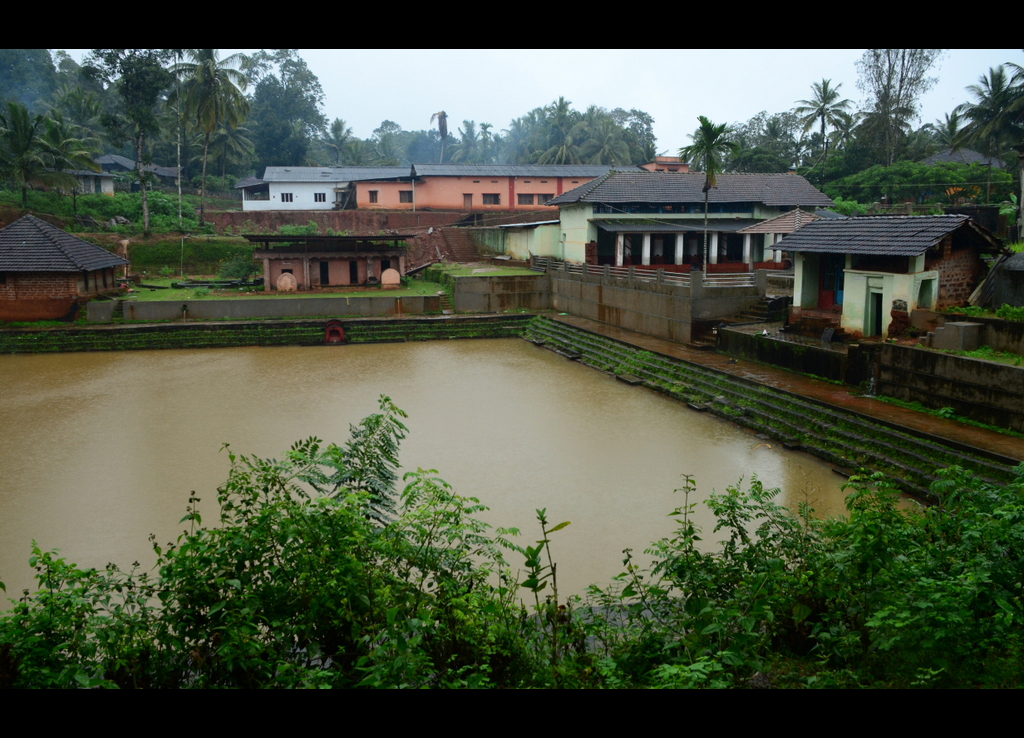


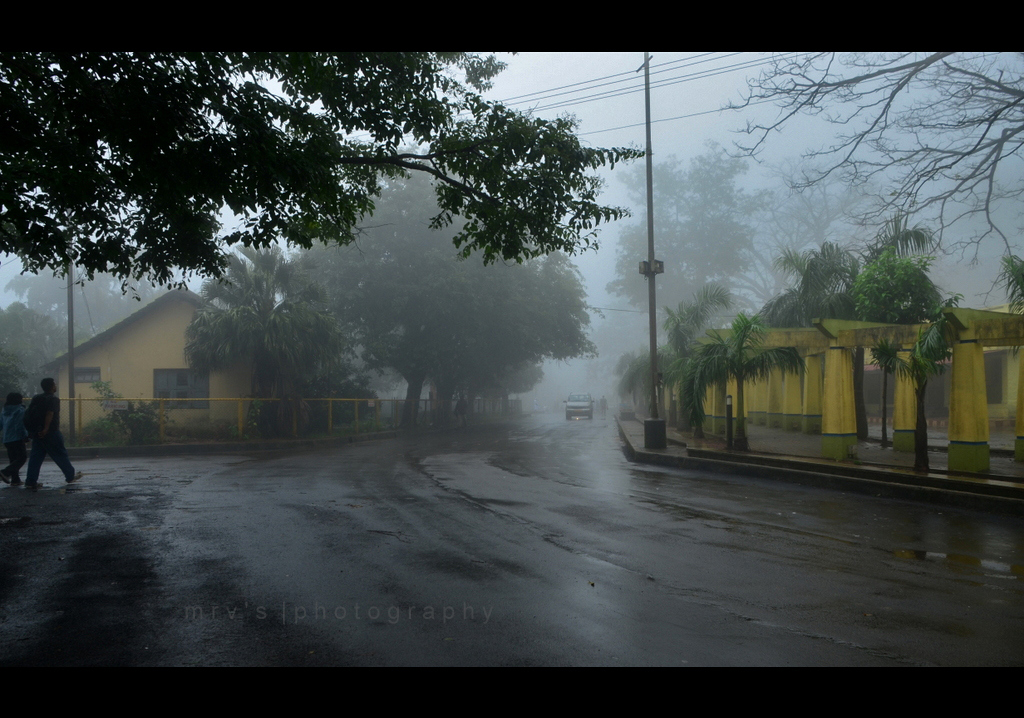


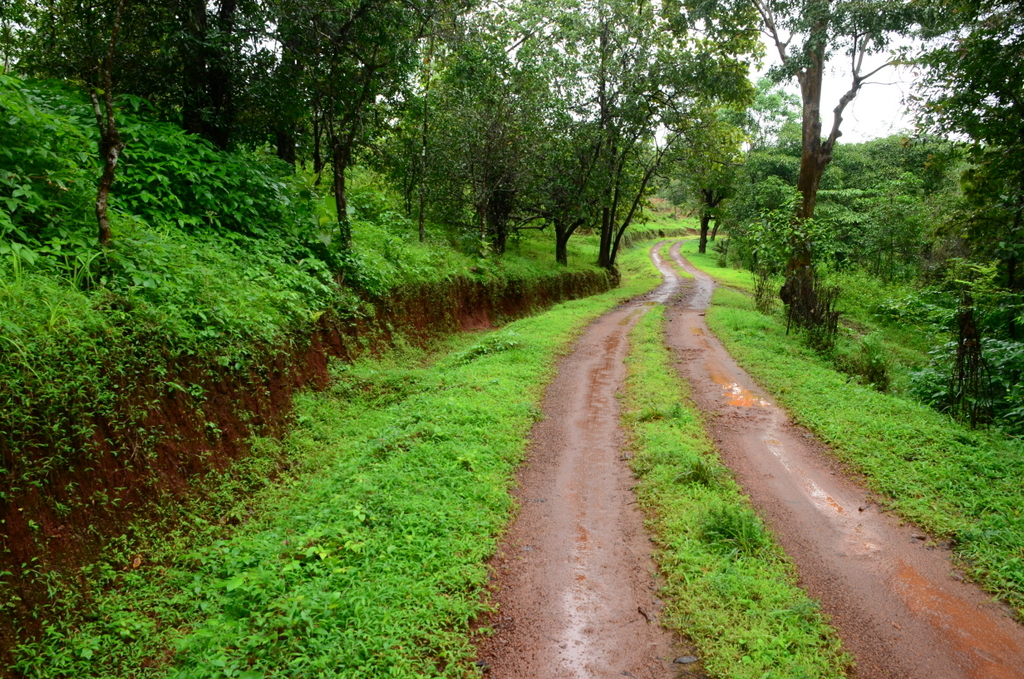
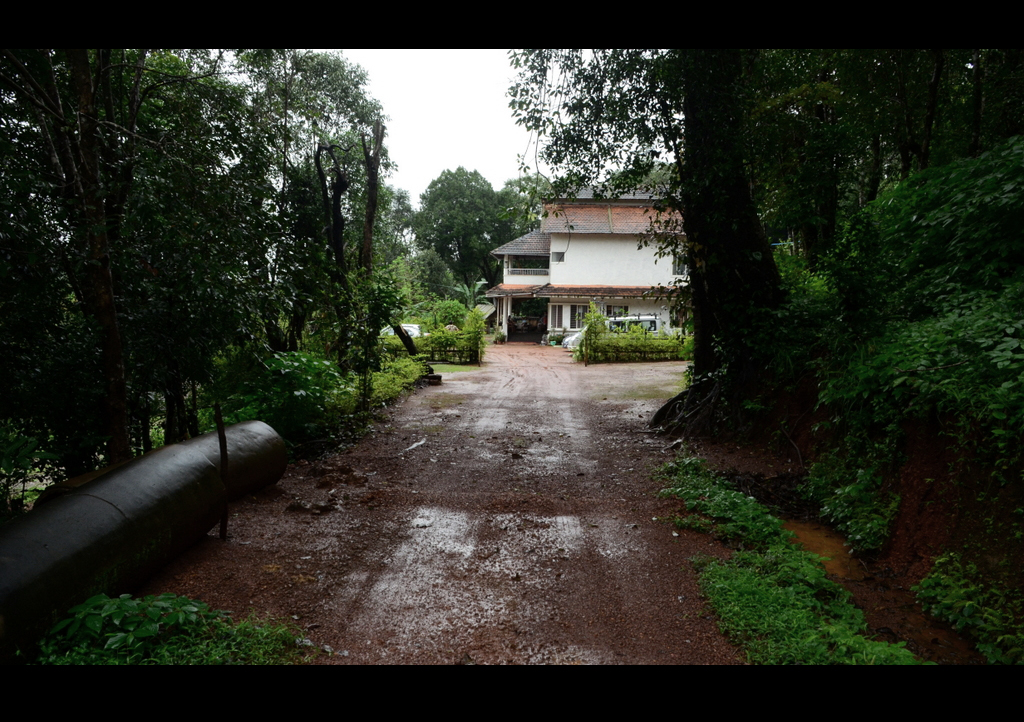













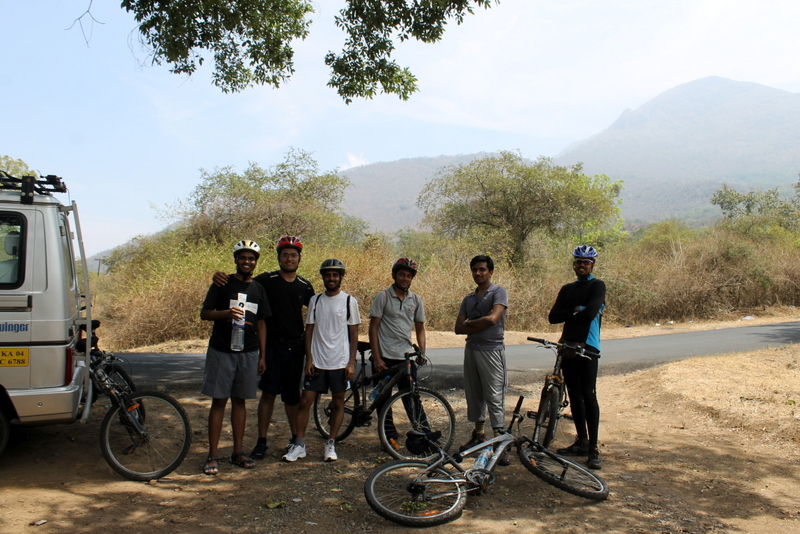





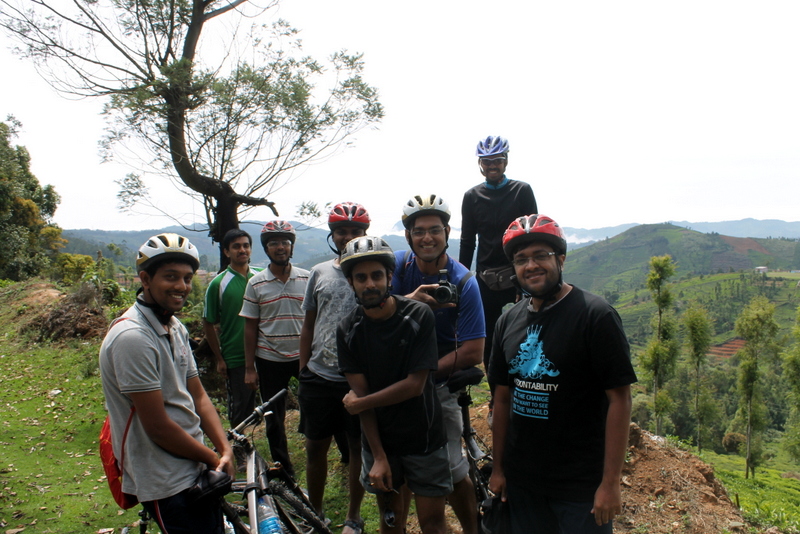 After spending some time at the view point we started on our way back to Bangalore.
After spending some time at the view point we started on our way back to Bangalore.

